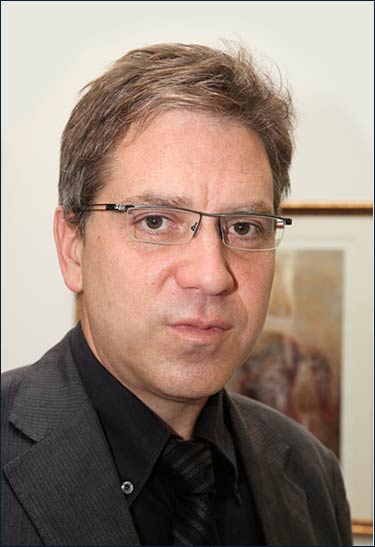By Avigayil Kadesh
The US Food and Drug Administration (FDA) has designated NurOwn, a unique Israeli experimental treatment for neurodegenerative diseases, as a “fast track” product – meaning it could find its way to the market more quickly than many other drug candidates.
NurOwn was developed by BrainStorm Cell Therapeutics based on a technique developed by Profs. Daniel Offen and Eldad Melamed at Tel Aviv University for growing and enhancing stem cells harvested from patients’ own bone marrow, rather than from controversial fetal stem-cell sources. The enhanced cells secrete elevated levels of nerve-growth factors that protect existing motor neurons, promote motor neuron growth and reestablish nerve-muscle interaction.
NurOwn isn’t a cure for devastating neuromuscular conditions such as amyotrophic lateral sclerosis (ALS, or Lou Gehrig’s disease), but in clinical trials conducted in Israel, it appears to ease symptoms and slow progression of such diseases.
Advanced clinical trials of NurOwn began in June 2014 at three major US medical centers, and BrainStorm raised $10.5 million in private investments. In July, BrainStorm was notified of the allowance of its US patent application, and the company began trading on NASDAQ in September.
Dr. Tony Fiorino, the New York-based CEO of BrainStorm, says the fast-track status “will allow us greater and more frequent dialogue with the [FDA] as we continue the development of this groundbreaking cell therapy for the treatment of ALS.”
According to the ALS Association, every year in the United States two in 100,000 people are diagnosed, usually between 55 and 65 years of age.
Promising results
Dr. Dimitrios Karussis, head of Hadassah University Medical Center’s Multiple Sclerosis Center in Jerusalem and a noted stem-cell transplant pioneer, conducted two initial trials on 24 patients.
“We are working on analysis of the data, but we can say there is some positive effect,” Karussis says. “In some of the parameters there was up to a 60 percent beneficial response after the treatment.”

Dr. Dimitrios Karussis has now treated 30 patients with NurOwn In addition to those trials, four ALS patients in an advanced stage of the disease received NurOwn transplants at Hadassah, starting in 2012, as “compassionate use” cases, including Omri Chotam, a former paratrooper in his 20s, and octogenarian sage Rabbi Rafael Shmuelevitz.
“All four had, at least for three to six months, a response of improvement in respiratory function or muscle power,” reports Karussis.
”The most impressive response was in the rabbi, who had a very severe and unique combination of ALS and myasthenia gravis. He improved substantially for about six months, started walking and speaking, and then the effects faded. Then we did a second injection and he had even more impressive improvement. This makes it highly unlikely to be a placebo effect, which is important to note.”
Ordinarily, some 90 percent of ALS patients die of respiratory failure within three to five years after the onset of symptoms. As the disease progresses, they lose the ability to stand or walk, and have difficulty breathing because the muscles of the respiratory system weaken.
“According to the data we have, the treatment makes a beneficial change in the progression of the disease. This is the first step. We probably need to improve the protocol to do multiple injections for the longer term, and find the best way of administration in each individual patient.”
Platform technology for several diseases
Karussis, who has now treated 30 patients with NurOwn, is collaborating and consulting with the multicenter US study approved by the FDA. This safety trial will involve a total of 48 patients in Massachusetts General Hospital, the University of Massachusetts Memorial Hospital and the Mayo Clinic.
“Each of the three sites is headed by important leaders in the field of ALS,” says Fiorino.
Three-quarters of the patients enrolled in the randomized, double-blind trial will receive NurOwn enhanced stem cells from their own marrow, and the remaining 12 will receive a placebo. The study is expected to be completed in early 2016, after which the results will be analyzed for safety and efficacy.
“This is really a platform technology with applications outside of ALS, though ALS is our lead indicator,” Fiorino explains. “The cells can apply in any disease where neurons are dying.” These include multiple sclerosis and Parkinson’s.
Fiorino acknowledges there are many companies in the stem-cell space. However, BrainStorm is the first to reach the clinical phase. What also makes it unique is its focused approach.
“Many other companies in the stem-cell space take a shotgun approach in which they use early stem cells that possess the potential to turn into many different cell types. By contrast, we have taken adult stem cells and converted them into factories that pump out growth factors known to promote the survival of neurons. Thus we know exactly where we want to use them; there are no mysteries.”